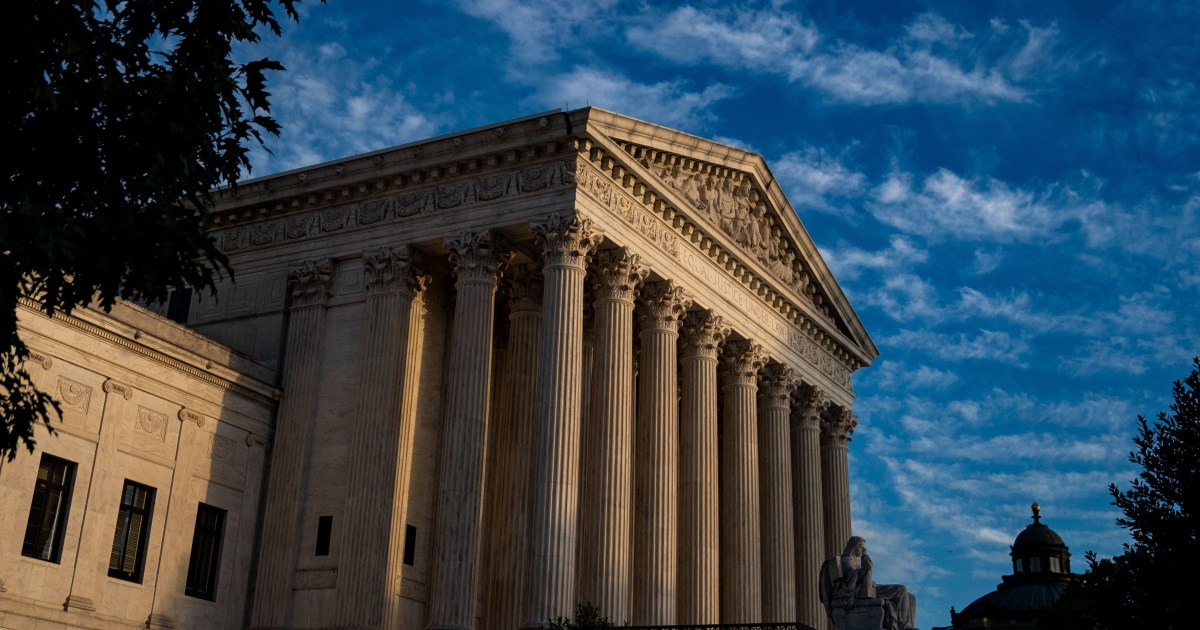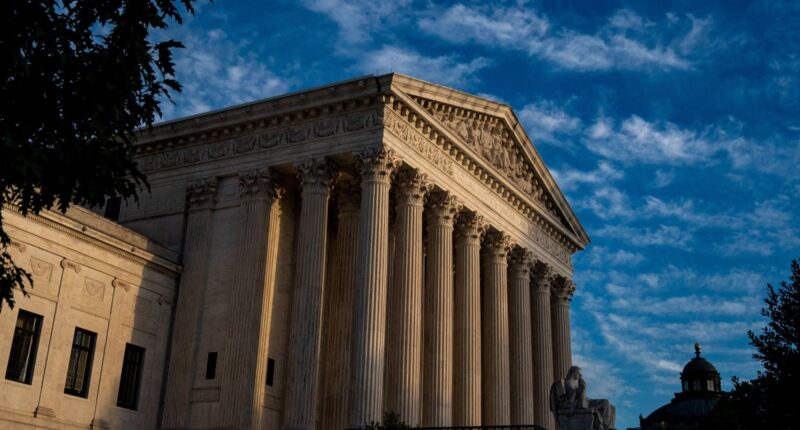
WASHINGTON — The Supreme Court on Tuesday declined to impose new limits on state courts reviewing certain election-related issues by ruling against Republicans in North Carolina fighting for a congressional district map that would heavily favor their candidates.
The justices ruled on a 6-3 vote that the North Carolina Supreme Court was acting within its authority in concluding that the map constituted a partisan gerrymander under the state constitution.
In doing so, the court declined to embrace a hitherto obscure legal argument called the “independent state legislature” theory, which Republicans say limits state court authority to strike down certain election laws enacted by state legislatures.
The independent state legislature argument hinges on language in the Elections Clause of the Constitution that says election rules “shall be prescribed in each state by the legislature thereof.”
“State courts retain the authority to apply state constitutional restraints when legislatures act on the power conferred on them by the Elections Clause,” Chief Justice John Roberts wrote in the majority opinion.
He added, though, that state courts do not have “free rein” when there are conflicts with federal law.
After the then-Democratic-controlled state Supreme Court issued the ruling last year, the court flipped to Republican control following November’s mid-term elections and recently overturned the decision, a move that prompted questions about whether the justices even needed to decide the case.
In dissent, Justice Clarence Thomas, joined by fellow conservatives Justice Samuel Alito and Justice Neil Gorsuch, said the case was moot.
The congressional map in North Carolina will be re-drawn ahead of the 2024 election anyway because of a state law provision that says interim maps can only be used for one election cycle. As a result of the North Carolina Supreme Court’s ruling, that map is likely to tilt heavily toward Republicans.
Supporters of the theory, which has never been endorsed by the Supreme Court, say the language supports the notion that, when it comes to federal election rules, legislatures have ultimate power under state law, potentially irrespective of potential constraints imposed by state constitutions.
A Supreme Court ruling that embraced the theory would have affected not only redistricting disputes, but also other election-related rules about issues like mail-in voting and voter access to the polls that legislatures might seek to enact even when state courts have held that those rules violate state constitutions. The theory could also bring into question the power of governors to veto legislation.
Then-Chief Justice William Rehnquist embraced a version of the theory in the Bush v. Gore ruling issued later in 2000, which ultimately led to Republican George W. Bush’s taking office as president. During December’s oral argument, several justices cited Rehnquist’s opinion, which did not secure a majority at the time, in support of the notion that there should be some constraints on the scope of state officials, including judges, to make changes to election laws enacted by legislatures that are not anchored in law.
The independent state legislature theory has subsequently been cited by supporters of former President Donald Trump in various cases during the 2020 presidential election and its aftermath.
The North Carolina case was being closely watched for its potential impact on the 2024 presidential election.
Republicans led by Tim Moore, the speaker of the North Carolina House of Representatives, invoked the theory after the state Supreme Court struck down the congressional district map in February of last year.
The state court ruled then that the 14 congressional districts — which Republicans drew to maximize the influence of Republican voters in a state strongly contested by both main parties — were “unlawful partisan gerrymanders.” The court’s then-liberal majority said the maps violated various state constitutional provisions, one of which requires that “all elections be free.”
Voting rights advocates and Democratic voters had turned to the state court after the U.S. Supreme Court ruled in 2019 that partisan gerrymandering claims could not be heard in federal court, but left open the possibility that state courts could address the issue.
Moore and other Republicans immediately asked the Supreme Court to reinstate the maps, saying the state court had overstepped its authority. The high court agreed to take up the case, but it left in place a replacement map used for this year’s midterm elections. Democrats and Republicans each won seven seats.
The Supreme Court in 2020 refused to intervene in the various election-related cases that raised the theory, but during the litigation four conservative justices indicated some support for it, giving its supporters hope that they might be a majority willing to embrace it.
There are several versions of the argument, some of which would merely limit the authority of state courts in certain circumstances and others that would go further in giving legislatures virtually unchecked authority.
Those backing the theory in briefs filed at the court included John Eastman, the lawyer involved in Trump’s efforts to overturn the 2020 election who argued that then-Vice President Mike Pence could block the certification of President Joe Biden’s victory on Jan. 6, 2021.
Various conservative groups that push for greater restrictions on voting and claim that voter fraud is a major issue have also backed the theory.
Democrats and voting rights activists issued stark warnings about the potential impact of the case in light of the attempts to overturn the results of the 2020 presidential election, although many high-profile GOP candidates who denied or questioned Biden’s victory lost in last year’s midterm elections.
Source: | This article originally belongs to Nbcnews.com









